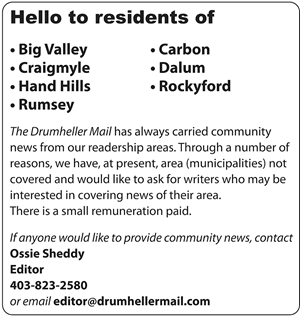
It was an unlikely reunion around six decades ago, but it was a powerful moment for a man who fought to defend his country, and just as much so for the man he liberated, and it all happened in Newcastle.
James Treanor was born in Glasgow, Scotland, in 1913, and his father, John, served in World War I with the 9th Battalion Highland Light Infantry. He died on September 26, 1917, in Flanders.
At just nine years of age, James boarded the Mountlaurier, sailed from Glasgow to New Brunswick and was placed on a train on December 22, 1923. He celebrated Christmas alone on the train before he arrived in his new home in Drumheller.
At age 26, he followed in his father’s footsteps and enlisted with the 2nd Field Battery RCA in Calgary in 1939. He served in the United Kingdom and Continental Europe for the duration of the war. He was discharged with the title of Sergeant. He was decorated with the 1939-1945 STAR, the France/Germany Star, the Defense of Britain Medal, the Canadian Volunteer Service Medal and Clasp and a letter of commendation from Field Marshall B.L. Montgomery.
He saw many things during his service, but one of the most horrific was the liberation of Bergen Belsen. This concentration camp was located in Northern Germany between Hamburg and Hanover. In April 1945, the allied forces entered Bergen Belsen and discovered 60,000 starving and sick prisoners and 13,000 bodies. Despite the efforts, many prisoners died.
After the war, Treanor returned to Drumheller. He married and went to work in the mines. He had two children, Bonnie and Billie, and resided in Newcastle.
His daughter, Bonnie Bellrose, said it was an interesting time growing up in Newcastle. The neighbourhood was made up of squatter homes, and there was a great mixture of different cultures. She can still smell all the cooking and the opera played by her Italian neighbour every Sunday.
“There was a whole different United Nations down there, and all these little towns were like that,” recalls Bellrose.
She recalls one particular day as a grade school student coming home from the Newcastle Cottage School, she found her parents very upset. She learned that her father had just walked to the post office to pick up the mail, and he met one of their neighbours, Walter Malenko, a fellow miner.
“Walter had approached my father and gave him a big bear hug, then with tears streaming down his face shook my father’s hand and thanked him for saving his life,” Bellrose recounts in a written biography of her father.
It turns out Malenko had been a prisoner in Bergen Belsen, and he was one of the prisoners that Treanor’s Unit had liberated.
“Walter told dad he had helped him when he couldn’t help himself and had promised himself that he would never forget his face,” wrote Bellrose.
She shared her story of her father and Malenko in a written collection that accompanies the banners the Drumheller Genealogy Club and Legion have partnered on and are hanging throughout downtown.
At that time just two doors were separating the families recalls Bellrose. Walter and his wife Marian had two children, a boy and a girl. While they were neighbours, they never became close friends. This was around the time the mines in the valley were beginning to close and many miners sought work elsewhere. While they never kept track, it’s quite possible that Malenko could have headed to the Crowsnest Pass or Canmore to continue mining or found work elsewhere.
“I think they were one of the families that went down there because basically, that was all he knew too, just like dad,” said Bellrose.
She recalls that after Bonnie married, she and her husband bought the Malenko family home to start their life.
Treanor stayed with the mine until it closed. He developed black lung and other ailments from mining. He worked as an ambulance attendant and as a gardener at the nursing home before he retired.

















